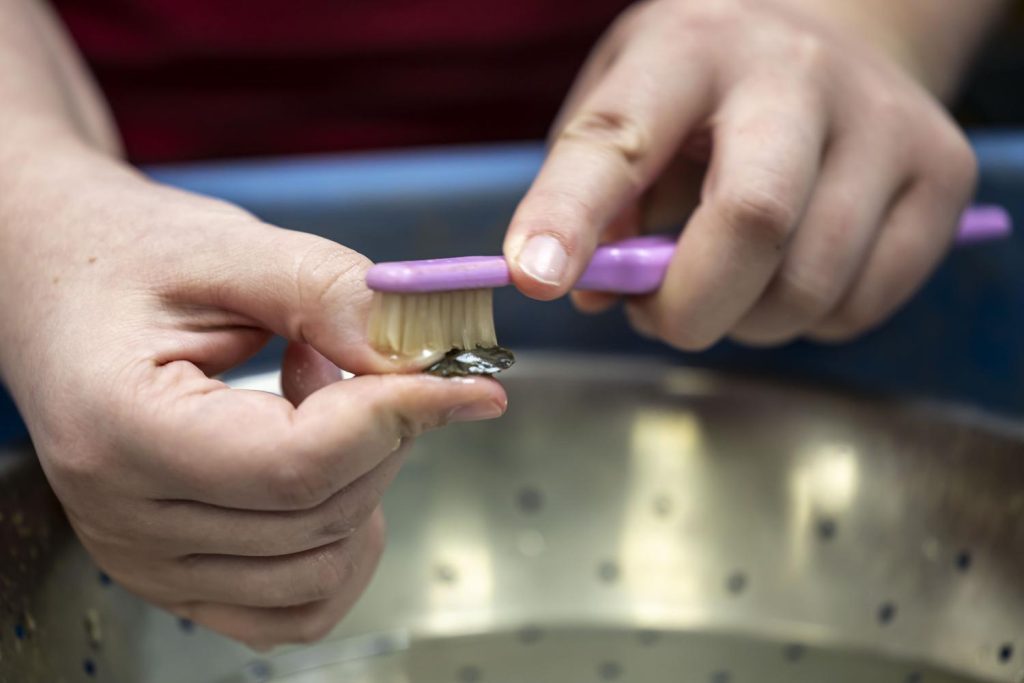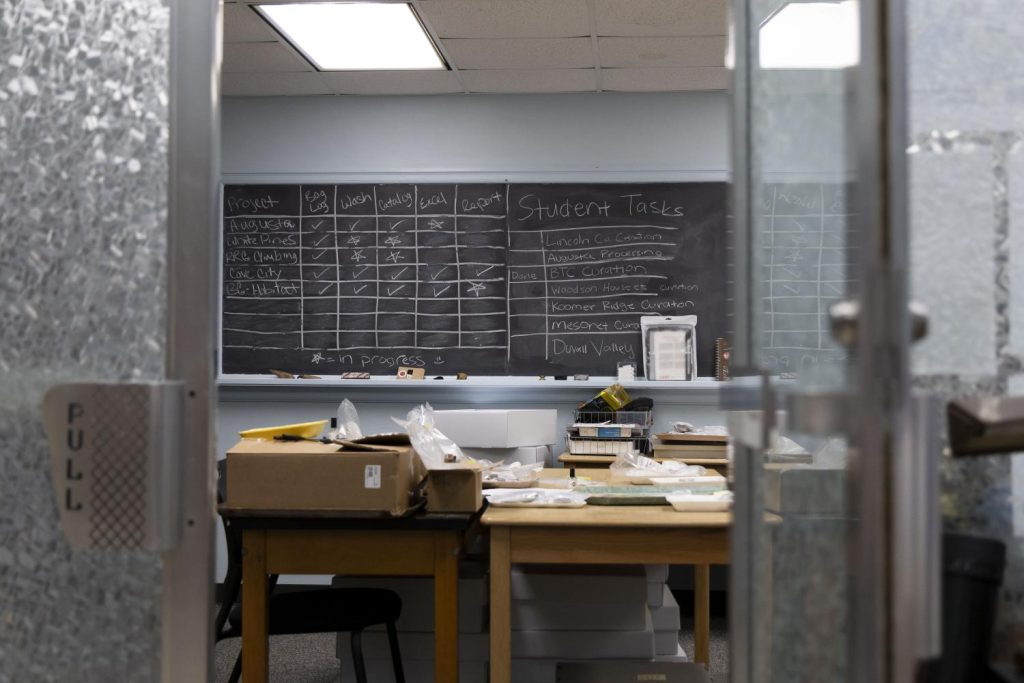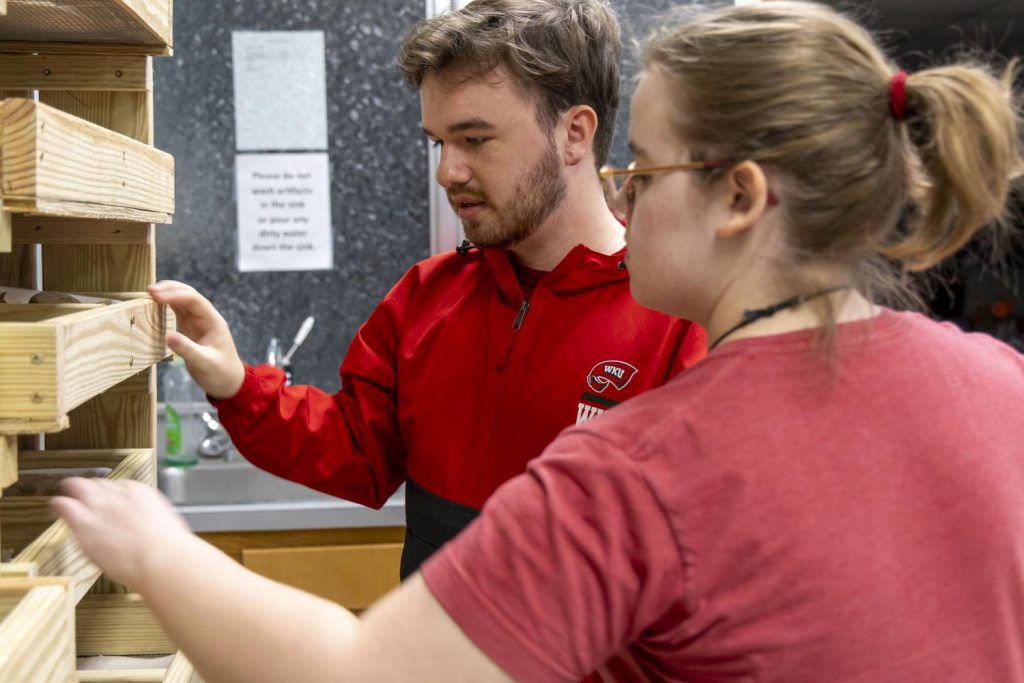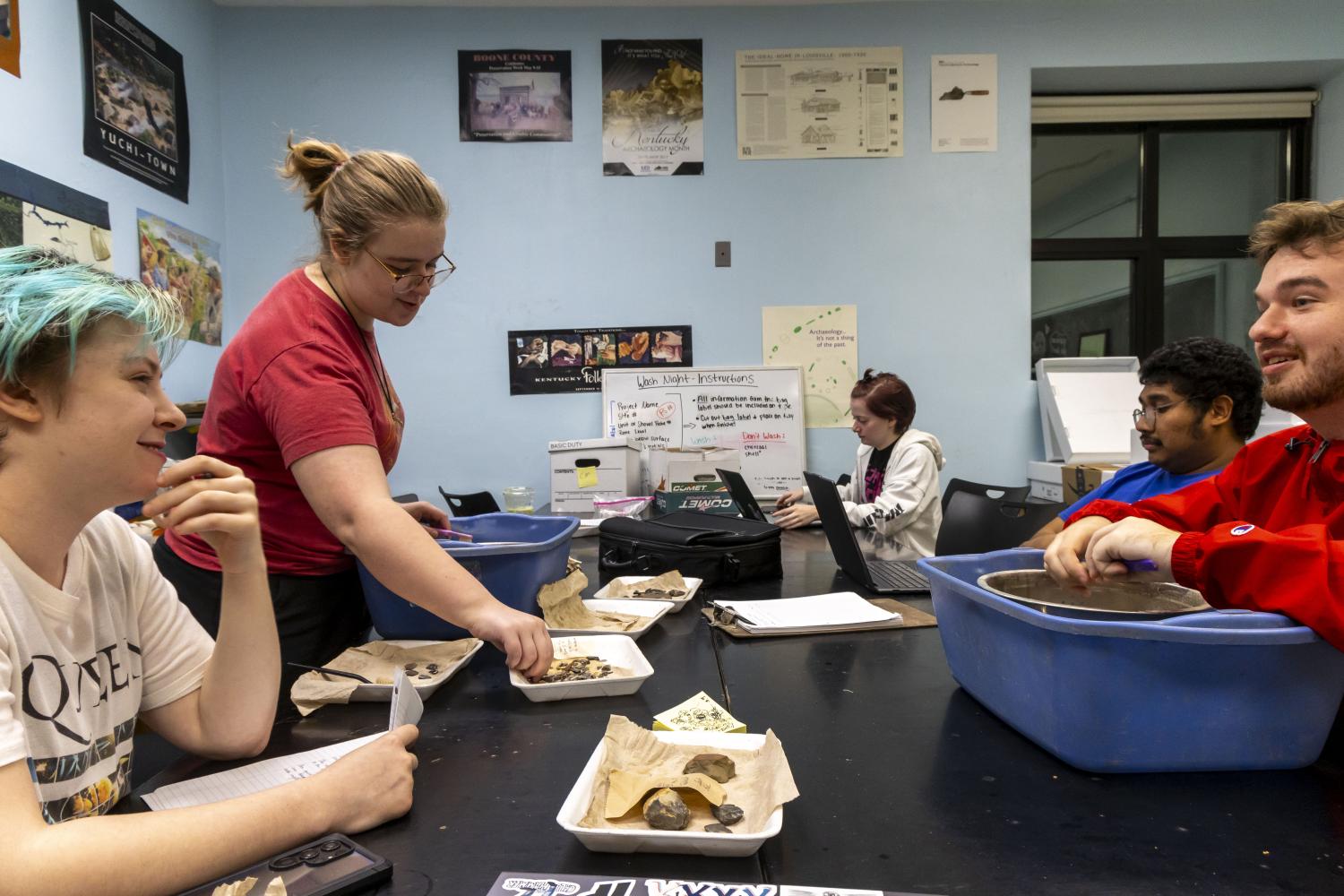Kentucky Archaeological Survey Wash Night is held every Wednesday from 5:00 p.m. to 7:00 p.m. in Cherry Hall. It is a volunteer-based event hosted by the Kentucky Archaeological Survey. It is comprised of volunteers from the Bowling Green community and student workers of the KAS.

Senior Julius Ayin from Yap, Microindonesia said Wash Nights consist of cleaning artifacts sourced from archaeological surveys across Kentucky. However, one of the latest volunteer nights on Nov. 20, contained objects from West Virginia.
“Almost all of this stuff comes from Kentucky, but some, like what we’re working on right now, is from Fort Warwick, West Virginia,” Ayin said. “It’s a Revolutionary War fort, but it’s also a Native American site, so we get a mix of materials from different periods.”
According to the Department of Archaeology and Historic Preservation website, surveying examines an area, usually by foot, to identify archaeological sites and evaluate the site’s significance.
Ayin said that there are multiple phases to a survey. Phase one is a search for archaeological sites to determine where the boundaries of land will be. He said phase two is digging a small trench and figuring out what to classify the land as. Phase three is the full excavation of the site. Ayin said most of the artifacts that the KAS cleans come from phase two and phase three.
“KAS has a lot of contracts with a lot of different organizations such as the National Forest Service and the Army Corps of Engineers,” Ayin said. “So, when they need work done they ask us first.”

Junior Ellen Swenson from Shelbyville, Kentucky said that the cleaning process is systematic. First, volunteers document the artifacts by placing them on foam trays. They label them by copying down information from the bags they came from. They then carefully scrub the pieces using water and brushes, ensuring they don’t damage fragile items like charcoal or shells.
Swenson said after the items are cleaned, they are sorted into categories like lithics, ceramics, glass and metal. When the bags are done being cleaned and sorted, they go to the drying rack and are passed on to supervisors who catalog them.
“I’ve always loved history, prehistory and preservation of our past,” Swenson said. “When we clean the artifacts it shows it’s not nothing to us.”
Senior Tyler Dedic from Richmond, Kentucky, said Wash Nights provides students with hands-on experience in anthropology, archaeology and related fields. He said the work offers practical skills that can set students apart in their future careers.
Dedic said that lab and field work are great ways to gain experience for anyone wanting to have a profession in anthropology.
“It’s surprising– schools like Louisville, UK and Eastern don’t have field experience requirements,” Dedic said. “It’s kind of concerning when I meet graduates from those programs who’ve never actually worked outside.”
He said that right now is a great time to be an archaeologist due to the passing of legislation that protects and expands the need for archaeologist’s work. Dedic said the field is also facing a shortage of professionals due to age and the pandemic.
“We’ve never had many archaeologists so there’s going to be a shortage and during COVID we lost a lot,” Dedic said. “Now, we’re getting a lot of resurgence and young people are getting more and more interested in the field.”

Along with gaining field experience, Swenson said there is a sense of community one can find by attending Wash Nights.
Swenson said there is a large community involvement which is valuable to anthropology. It also allows for the group to give back to the community that supports the archaeological process.
The KAS Wash Nights provides students with hands-on experience. It bridges what is learned in the classroom to real archaeological fieldwork, Swenson said. The work done at Wash Nights serves the Kentucky community in artifact preservation and ensures that cultural history is protected.
“Handling these objects allows you to connect with the past in a way that textbooks can’t,” Swenson said. “It’s a real, hands-on experience of how archaeology is done from start to finish.”


